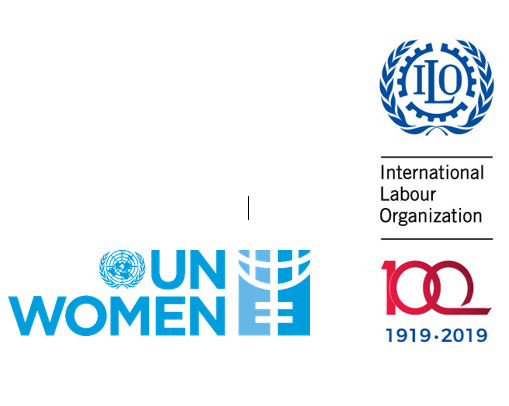To effectively address violence and harassment in the world of work there is a need for women to have voice and agency. Many women in vulnerable situations do not speak out about violence and harassment at work for a range of reasons. For example, garment workers in Bangladesh have reported regularly receiving threats when they attempt to speak out about abuses (International Labor Rights Forum, 2015). According to a survey in the Indian garment sector, 82 per cent of workers surveyed did not tell anyone about sexual harassment they had experienced, 89 per cent did not formally report it to management or police, and 75 per cent indicated the absence of functioning internal complaints committees in their factories (Sisters for Change and MUNNADE, 2016). Empowering victims to share their experiences and safety concerns is key to understanding the pervasiveness of violence and harassment and to develop appropriate responses. Participatory approaches that promote victims’ empowerment, such as interviews or focus group discussions outside the workplace, and creative methods, such as artwork and body mapping, encourage them to confidentially share their experiences.[1]
|
Enhancing women’s voice through participatory research |
|
US Solidary Center participatory research on gender-based violence[2] The Solidarity Center is engaged in processes to enable women to define and reflect on the issue of gender-based violence at work and how it impacts their lives as women and as workers. It also aims to place the voice of women workers at the forefront of workplace, national and international campaigns to combat gender-based violence at work locally and globally. The Center carries out work with women in trade unions in Cambodia, Indonesia, Thailand, Malaysia, Burma and Vietnam. For instance, the Solidary Centre’s activities in Cambodia and Indonesia are aimed at analyzing the scope and nature of gender-based violence in garment sector factories and increasing the understanding of the issue among the programme’s participants. The Center is also carrying out similar participatory research and awareness-raising work in Morroco, Tunisia, South Africa, Mexico and Peru. Participatory research has helped to empower women workers and to build their advocacy roles in campaigning to end violence and harassment at work. |
|
ITUC project “Decision for Life” (ITUC, 2011) “Decision for Life” highlights violence and harassment as a major issue of concern affecting the daily lives of young women workers in Angola, Azerbaijan, Belarus, Brazil, India, Indonesia, Kazakhstan, Mozambique, South Africa, Ukraine, Zambia and Zimbabwe. Considering violence at work as a structural problem, which is rooted in wider social, economic, organizational and cultural factors, it seeks to empower young women to advocate for their rights. Successful outcomes from the campaign include a significant increase in young women’s union involvement and the negotiation of collective agreements and workplace policies that address their concerns. For example, one union representative from the South African Commercial, Catering and Allied Workers Union (SACCAWU) negotiated a workplace policy on sexual harassment with her employer and opened up discussions with young women workers to break the silence on the issue. |
[1] See Morris and Pillinger (2016) op cit. for the range of creative and innovative ways to increase women’s voice. See also Fair Wear Foundation (FWF) (2016) FWF Artwork Focus Group Project Report. Amsterdam, FWF.
[2] Information provided by Robin Runge, Senior Gender Specialist, Solidarity Center, Washington DC.
